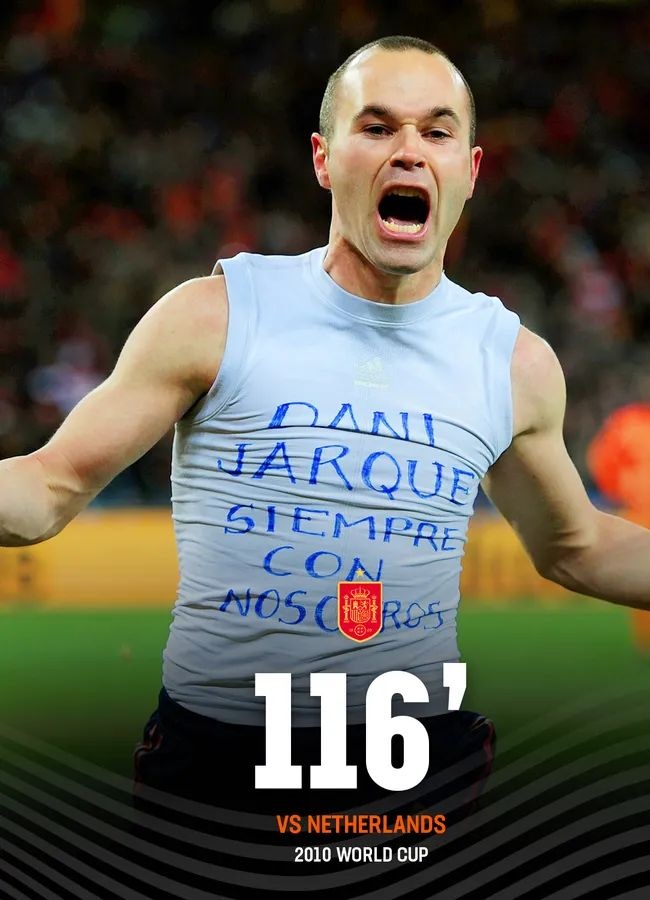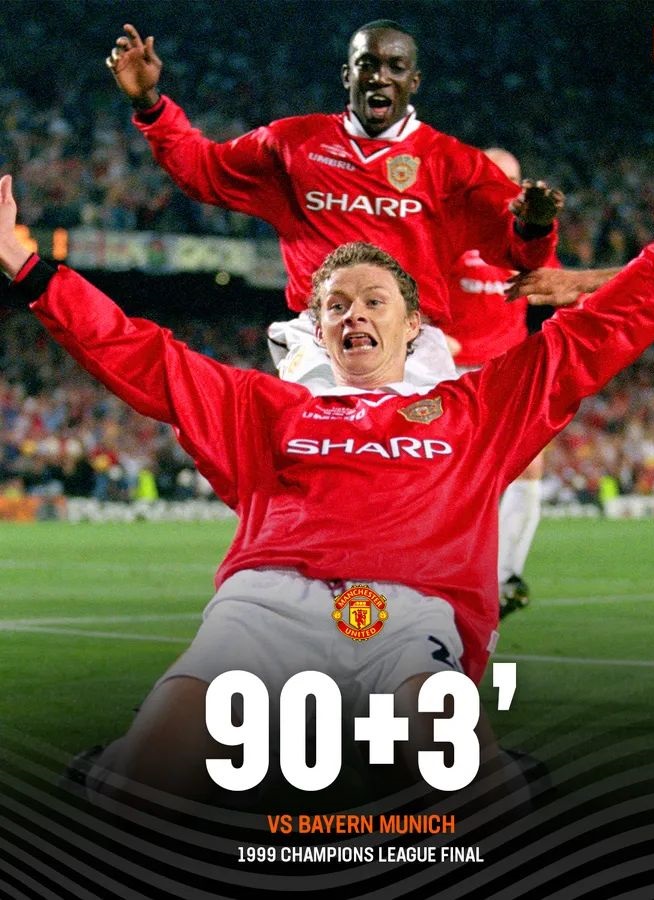Top 10 Last Minute Winning Goals In History That You Don’t Know
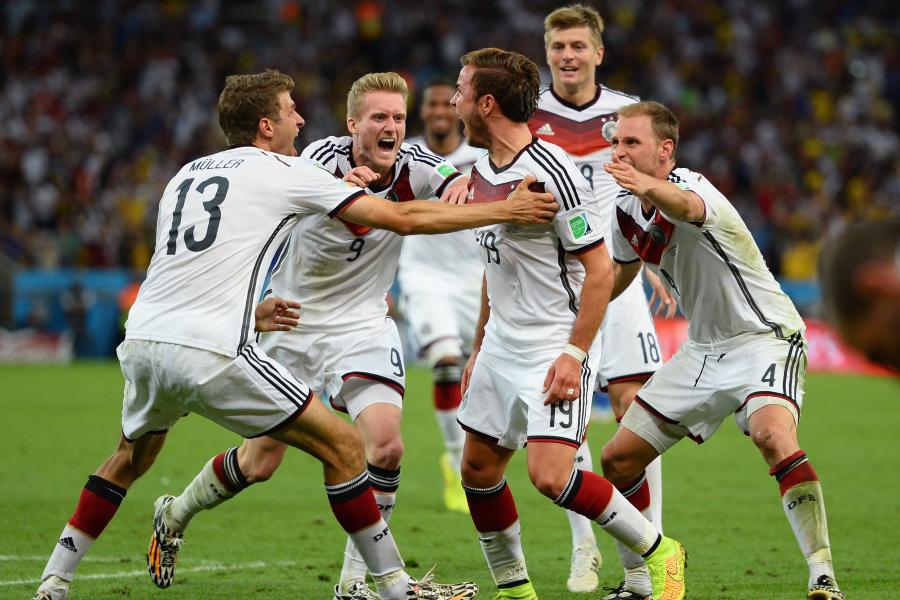
1. 2014 World cup final between Germany Vs Argentina:
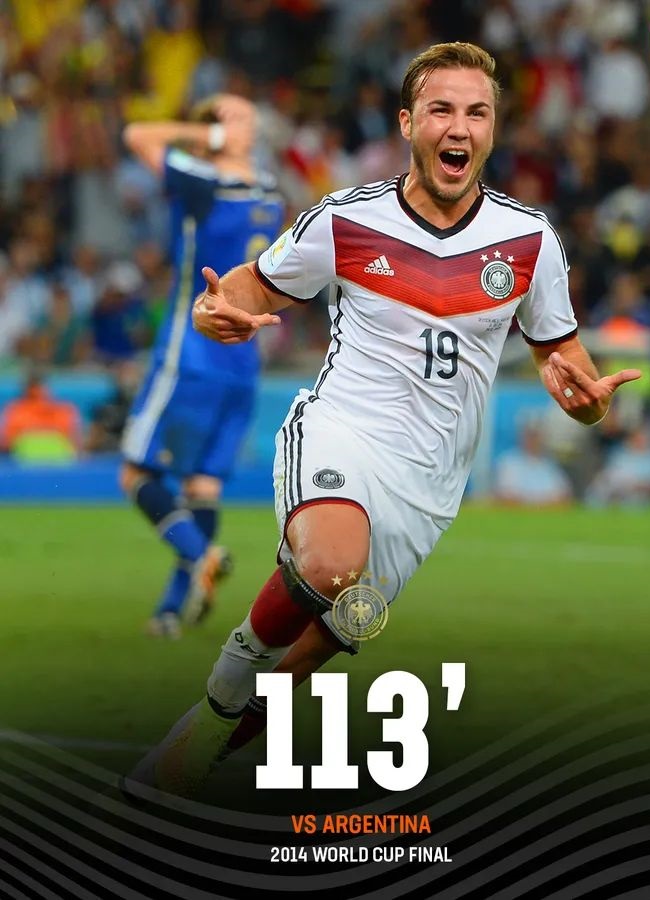
Match Venue: Maracanã stadium in Brasil
Match Formation used:
Germany 4-3-3
Argentina 4-2-3-1
Last Minute winning goal scorer for Germany: Mario Götze on the 113′ minute
Then Club managers:
For Germany: J. Low (Joachim Löw) For Argentina: Late A. Sabella (Alejandro Sabella)
2. 2010-WORLD CUP FINAL BETWEEN SPAIN VS. NETHERLAND
Match Venue: FNB Stadium in Johannesburg, South Africa
Last Minute winning goal scorer for Spain: Andrés Iniesta on the 116′ minute
Then Club managers:
For spain: Vicente del Bosque ( Spanish football manager). For Netherland: Bert van Marwijk (Dutch football manager)
4. 2011/2012 Premier League Match Between Manchester City And Queens Park Rangers at Etihad Stadium
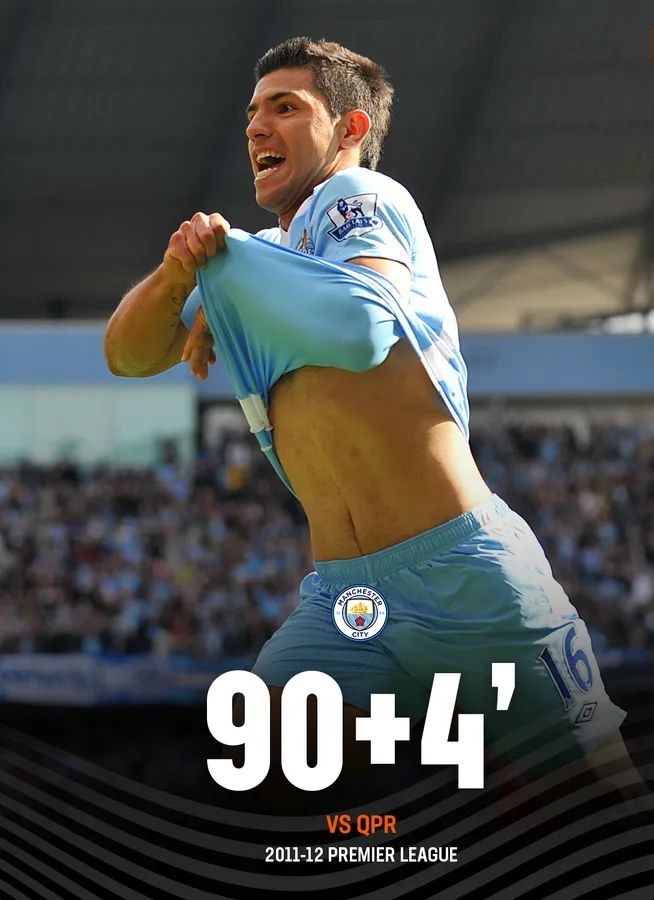
On 13 May 2012, Manchester City played Queens Park Rangers at the Etihad Stadium in both teams’ final match of the 2011–12 Premier League season. City entered the match in first place on goal difference, being level on points with local rivals Manchester United, and needed to match United’s result to win the league. Meanwhile, QPR entered the match one spot above the relegation zone, knowing that a draw would secure safety at the expense of Bolton Wanderers. City won the match in dramatic fashion, reversing a 2–1 deficit by scoring two goals in stoppage time, with the winner being scored by Sergio Agüero, to clinch their first league title since the 1967–68 season. The win began a period of dominance in English football for City, with the club winning five more Premier League titles over the subsequent 10 years.
The match, and more specifically, the final goal of the match, has repeatedly been described as one of the greatest moments in Premier League history. The terms “93:20” and “Agueroooooo” have entered Manchester City folklore as a result, the former describing the exact second of the match at which point the final goal was scored, while the latter was commentator Martin Tyler’s live response to the goal.
Man of the Match: Sergio Agüero (Manchester City) RTD.
5. 2013 UEFA Champions League Final Between Bayern Munchen And Borussia Dortmund
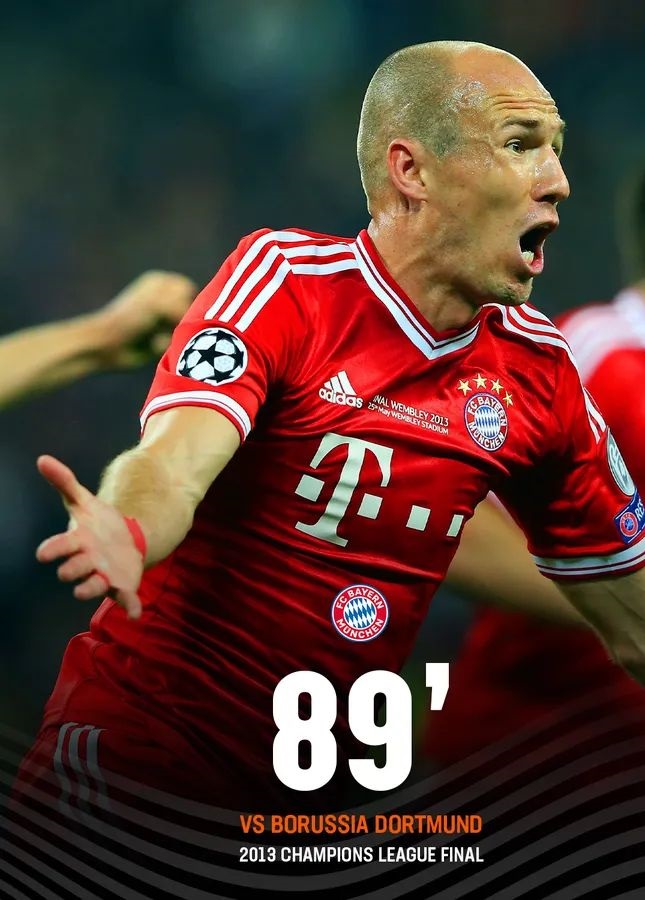
The 2013 UEFA Champions League final was the final match of the 2012–13 UEFA Champions League, the 58th season of Europe’s premier club football tournament organised by UEFA, and the 21st season since it was renamed from the European Champion Clubs’ Cup to the UEFA Champions League.
The match took place on Saturday, 25 May 2013, at Wembley Stadium in London, England, between German Bundesliga clubs Borussia Dortmund and Bayern Munich. In the first all-German Champions League final, Bayern won the match 2–1 with goals from Mario Mandžukić and man of the match Arjen Robben coming either side of an İlkay Gündoğan penalty for Dortmund.
One week later, Bayern won the 2012–13 DFB-Pokal and, having already won the 2012–13 Bundesliga, completed the continental treble. As a result of their Champions League win, Bayern qualified to play against Chelsea, the winners of the 2012–13 UEFA Europa League, in the 2013 UEFA Super Cup, and also earned the right to enter the semi-finals of the 2013 FIFA Club World Cup as the UEFA representative. They would eventually go on to win both competitions.
THEN MANAGERS
Jurgen Klopp
(Borussia Dortmund Coach) |
Jupp Heynckes
(Bayern Munchen Coach) |
6. 2014 Copa Dey Rey Finals Between Real Madrid Vs. Barcelona
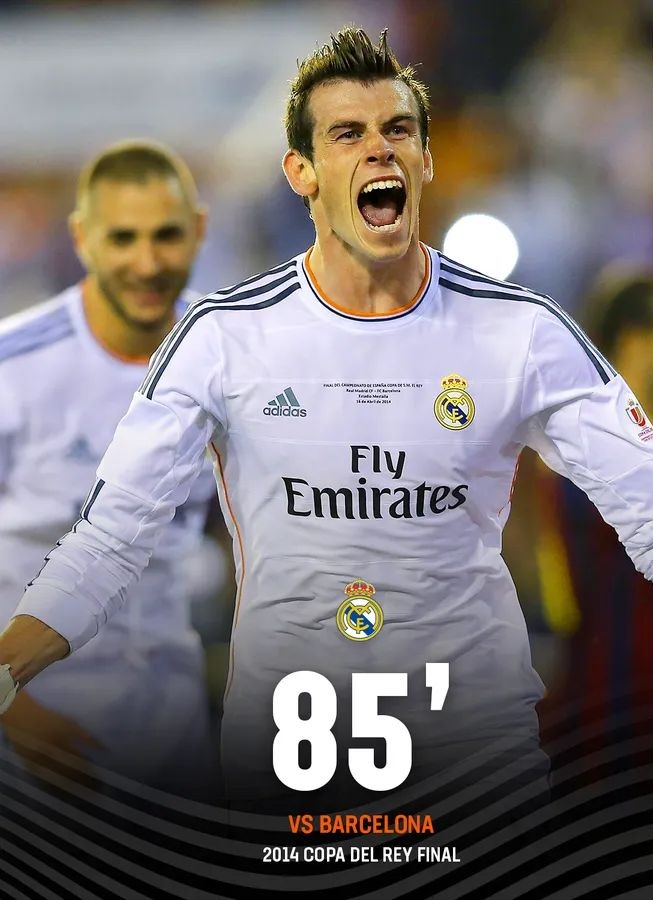
The 2014 Copa del Rey final was the 112th final of Spain’s premier football cup since its establishment (including two seasons where two rival editions were played). The match was an El Clásico between Real Madrid and Barcelona on 16 April 2014 at Mestalla in Valencia, making it the seventh such Copa del Rey final (the most recent was also played at the Mestalla on 20 April 2011).
Real Madrid won the cup for the 19th time after a 2–1 win. In winning the final, Real Madrid went on to play against Atlético Madrid, the winners of the 2013–14 La Liga season, in the 2014 Supercopa de España.
THEN MANAGERS
Gerardo Martino
(Barcelona Coach) |
Carlo Ancelotti
(Real Madrid Coach) |
Late Goal Scorer: Gareth Bale
7. 2016/2017 UEFA Champions League Match Between Barcelona And Pais Saint Germain
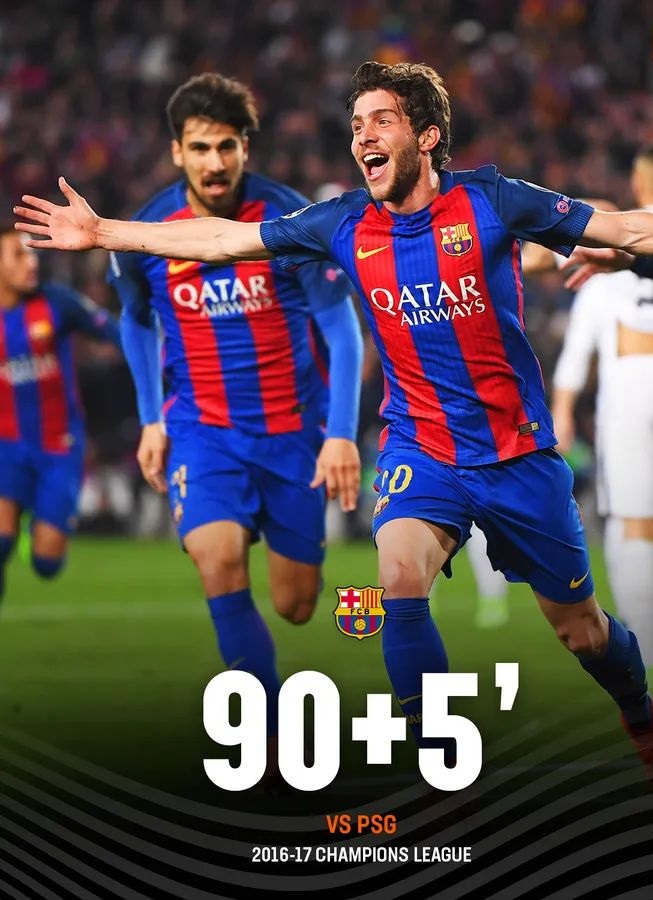
FC Barcelona 6–1 Paris Saint-Germain F.C. was the result of the second leg of a UEFA Champions League tie which occurred on 8 March 2017 at the Camp Nou in Barcelona. FC Barcelona overcame a four-goal deficit in the second leg of their 2016–17 UEFA Champions League round of 16 tie against Paris Saint-Germain to win 6–5 on aggregate, making it the largest comeback in UEFA Champions League history, which became known in Spain and France as la Remontada (the comeback).
First leg: PSG 4: Barcelona 0 (Princes Park)
Second Leg: Barcelona 6- PSG 1 (Camp Nou)
Aggregates: 6-5
THEN MANAGERS
Luis Enrique
(Barcelona Coach) |
Unai Emery
(PSG Coach) |
8. 2016/2017 Laliga Match Between Barcelona And Real Madrid

THEN MANAGERS
Ernesto-valverde
(Barcelona Coach) |
Zinedine Zidane
(Real Madrid Coach) |
Tactical Review Of (2016/17 La Liga): Real Madrid 2 – 3 FC Barcelona:
Model of Play
This was the second el clasico of the season and a match billed as a potential title decider. Real Madrid and Barcelona came into this game in contrasting moods as the latter were reeling from the stinging elimination against Juventus in the Champions League while the former qualified for the semi-finals in the same competition. Futhermore, Barcelona struggled in their last two matches — losing the first before managing a difficult win against Real Sociedad. Real Madrid, while not flawless by any means, earned one point more over those two matchdays putting them in a favorable position as the league entered its final stretch.
Both sides had to deal with the absence of key players. Neymar, Barcelona’s undisputed starter on the left wing, was suspended while Pepe and Varane remained sidelined due to injury. In slightly surprising news, Bale was named to Los Blancos’ starting line-up after recently recovering from a calf muscle injury. Taking the situation the clubs found themselves in, they each fielded very strong teams. Bale replaced Isco in an otherwise unchanged XI from the last game against Bayern Munich while Alcacer filled Neymar’s vacated spot.
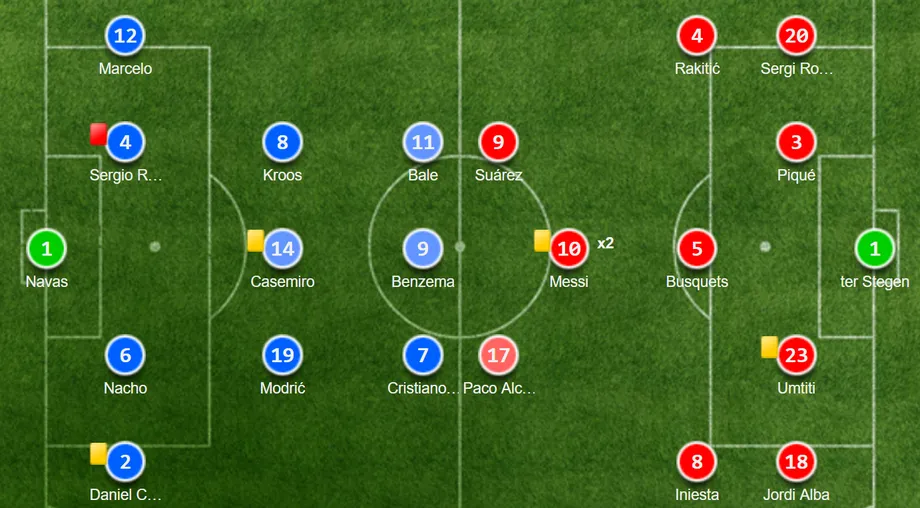
Real Madrid adopted their typical 4-3-3 formation which transforms into a 4-4-2 without the ball. They employed controlled buildup in order to progress vertically across the pitch but supplemented this with deliberate direct exploitation of any gaps and holes in Barcelona’s defense. This led to an early chance when Ramos drove the ball from behind the halfway line to find Carvajal’s run into open space. That scene would be replicated throughout the match as Marcelo, Carvajal, and the forwards looked to take advantage, especially in transition, of unguarded lateral zones. This worked successfully in terms of delivering the ball to players in those areas of the pitch but the tactic was undermined by subpar attacking actions. Particularly: 1) poor decision-making and interplay between the forwards, 2) underwhelming crossing and play-making from the wings, and lastly 3) low quality shot taking and finishing.
Ronaldo and later on, Asensio, were the two most active proponents going forward. They facilitated counter-attacking and transition-based vertical progression by providing useful outlets to the midfield. Benzema and Bale (for his limited appearance) were not as productive and supportive. Bale struggled to participate effectively and played far too advanced (positionally) to aid the construction of play and creation of chances — he did sporadically drop deep but not nearly enough to significantly have a notable impact. Benzema’s issue was primarily his touch and offensive movements. The striker continually lost the ball in dangerous positions and failed to test the Barcelona defenders in any meaningful way — additionally, he did not make enough of the opportunities that he had.

However, Benzema wasn’t as much of a non-factor as Bale because the former was more involved in the possession and ball circulation phases of play in the offensive third. This specifically suited targeted central attacking that the team put into action at times. Modric was the fulcrum of this strategy. His great on-the-ball ability and mobility enabled him to penetrate through the middle in an attempt to both vary Real’s offensive framework and capitalize on accessible prime locations. Unfortunately, the Croatian wasn’t able to completely influence play by himself and did not receive the necessary assistance from the rest of the team. Kroos’ flat playing profile combined with Casemiro’s extensively discussed issues in possession hampered the ability of the team to implement more dynamic central attacking. The few moments that it worked displayed its potential viability in the context of this match.
Defensively, the team’s strategy was comprised of active pressing immediately upon losing the ball and, secondly, containment of extended Barcelona possession. The success of the press was mixed. Although it caused several key dispossessions that led to good chances, Barcelona was still able to comfortably play out from the back. Part of it was due to the Catalonians’ style of play and first rate passing but overall there was a sense that the pressing was a little counter intuitive. The aggressiveness and urgency of Real Madrid’s recovery play displaced the responsibility to initiate and instigate from the visitors onto the league leaders. This compromised the advantage that being three points ahead and realistically only needing a draw should have given Zidane’s men.
The consequence of pushing as high as Real did was a fragmented and stretched unit that exposed players in matchups. Key examples were Messi vs Casemiro, Marcelo/Nacho vs Alcacer/Suarez, and Iniesta/Rakitić vs Kroos/Modric. Although the individual performances were below the expected standard, the lack of a systematic safety net in the form of a compact and tight shape amplified defensive miscues. This became even more evident when the team was chasing an equalizer in the second half. Ramos’ red card (wholly due to a poor tackle that he should not have made) came from a situation where he found himself completely isolated against Messi. This is an extremely unfavorable scenario (which unfortunately occurred more than once) as any mistake by the center back could result in the Argentine breaking free on goal.
After the sending off, the team struggled intensely to regroup and reorganize as they appeared to almost play without a designated centerback cover for Ramos for a while. Once they settled, they did brilliantly and managed to obtain an equalizer. James’ introduction provided an instant offensive boost accompanied with his standard calming influence in possession. This almost begged the question if Isco might have been a better substitute than Kovacic but the latter’s speed was beneficial. The remainder of the game was odd. Everything seemed to be under control and almost tipping in the hosts’ favor until the very last play where Messi scored the winner. Barcelona stuck the dagger in Madridistas hearts leaving the Spanish Capital with full points and bragging rights.
Summary of Select Key Chances
Minute 28: Marcelo–>Ramos–>Casemiro–>Goal
Kroos’ corner was cleared and the ball fell to Marcelo. The Brazilian played it to the far post where Ramos met it. His well taken shot rebounded off the inside of the post and fell to Casemiro who scored from close range. This was one of the very rare instances Real Madrid threatened from set pieces.
Minute 32: [Off Camera]–>Iniesta–>Alba–>Iniesta–>Umtiti–>Pique–>Roberto–>Pique–>Iniesta–>Pique–>Rakitic–>Roberto–>Messi–>Busquets–>Rakitic–>Messi–>Goal
A fantastic goal following patience and intentional possession play. Iniesta worked with the center backs to reset play before it was switched to the right side where Rakitic, Roberto, and Messi combined before the Croatian fed Messi. The #10 dribbled past three players before slotting the ball past Navas.
As hard as the play was to defend because of the timing of Messi’s run to meet Rakitic’s pass — Casemiro was at fault for losing track of Messi who he was clearly marking.
Minute 67: Nacho–>Modric–>Benzema–>Asensio–>Ronaldo–>Shot off target
This sequence of play reflected Real Madrid’s strategy to exploit space in the wings. They won the ball back in their half and Modric played it forward to Benzema. The French man controlled the pass before beautifully lobbing it to Asensio.
The young Spaniard burst into the box and squared to Ronaldo. The ball was a little behind the Portuguese whose effort was off target. Both Asensio (on the pass) and Ronaldo (on his run) could have done better.
Minute 68: [Off Camera]–>Suarez–>Roberto–>Messi–>Iniesta–>Suarez–>Shot on target
Messi played Iniesta into space and the Spaniard took advantage of the gap that existed due to Real over-committing. Iniesta found Suarez with a great ball over the defense but the striker’s half volley was amazingly denied by Navas. Marcelo’s coverage of Suarez was poor in this play.
Minute 73: Rakitic–>Goal
Nacho tackled Messi and Rakitic picked up the loose ball at the top of the box. He feigned a shot to create room and unleashed a great strike that beat Navas. Casemiro’s absence was felt but Kroos and Kovacic’s marking should have been tighter.
Minute 85: Carvajal–>James–>Kroos–>Kovacic–>Modric–>James–>Carvajal–>James–>Kroos–>Marcelo–>James–>Goal
Down to ten men, Real Madrid patiently worked the ball up the field as James combined with Kroos to switch play to Marcelo. The Brazilian took a touch before delivering a great cross that James got to first in the box and scored. This was a tremendous goal highlighted by combination play, quality crossing, and great movement.
Minute 92: Roberto–>Busquets–>Roberto–>Pique–>Busquets–>Roberto–>Gomes–>Alba–>Messi–>Goal
A truly surreal goal to witness. Barcelona were taking a throw-in close to the corner flag in their half with only 30 seconds to go. Even with ten men, many things have to go wrong (and, conversely, right for the other team) for this situation to result in a goal. Real’s inexplicable press is wonderfully bypassed by Barcelona as Sergi Roberto used his pace to breach the forward and midfield lines to create a 5 vs 3.
He played it out wide to Gomes who delayed play a little before feeding Alba. The left back pulled it back for Messi and the Argentine made Real pay with an excellent curler.
9. 2018/2019 UEFA Champions League Match Between Tottenham And Ajax
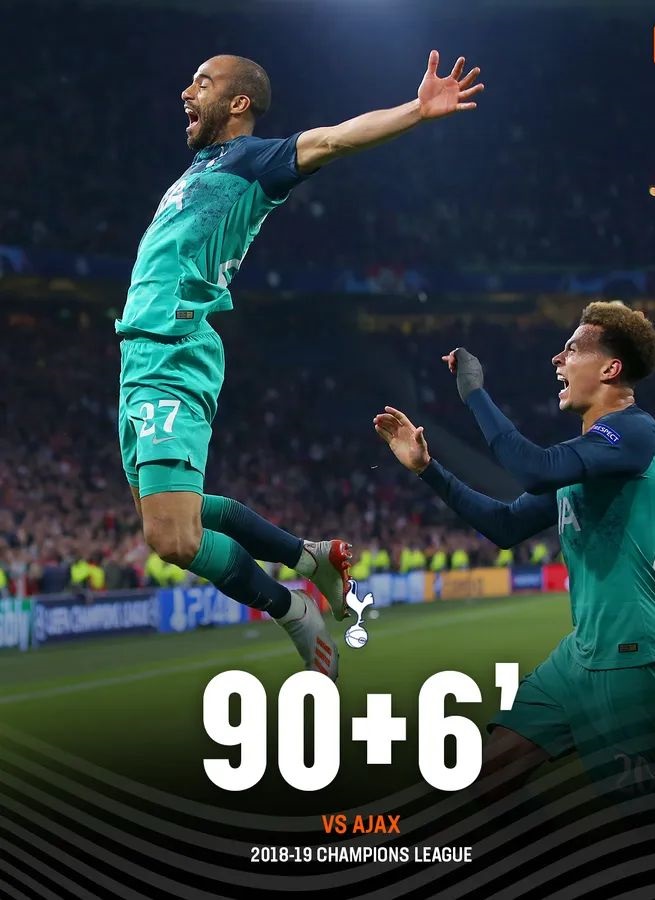
Matthijs de Ligt and Hakim Ziyech each scored in a first half to seemingly send a classy Ajax side to the Madrid showpiece.
But Lucas’ lightning-quick double in two second-half minutes here in Amsterdam was followed by the fatal blow one second after the five minutes of added time had elapsed to set up an all-English final with Liverpool.
Ahead of the first leg, both managers were at pains to insist that the other side were favourites. There were no doubts here in Amsterdam, the pressure was on the hosts for the first time in this knockout stage.
Ajax were playing the second leg of a tie with the lead and at home for the first time this season, having not won here in a Champions League knockout game since 1996.
THEN MANAGERS
Mauricio Pochettino
(Tottenham Coach) |
Erik ten Hag
(Ajax Coach) |
10. 2009/2010 Premier League Match Between Manchester United And Manchester City

The first match between Manchester United and Manchester City in the 2009–10 Premier League football season was played on 20 September 2009 at Old Trafford, Trafford. It was the 153rd Manchester derby between the two clubs. Heading into the game, both teams were level on points having both won four matches in the opening weeks of the season, and big-spending City were seen as a new threat to United, who had been the dominant force in English football for over 15 years.
During the summer transfer window, striker Carlos Tevez had controversially left United to join City, and the match marked his return to face the club he had had much success with during his two-year stint. His replacement at United was veteran striker Michael Owen, much maligned for his injury record and status as an unwanted free agent. Throughout the summer and in the build-up to the match, Alex Ferguson and Mark Hughes, managers of United and City respectively, engaged in a bitter war of words through the media in an attempt to undermine the other. Ferguson, who had managed United for almost 23 years, made some of his most famous and scathing remarks towards City during this period.
In the match itself, Wayne Rooney opened the scoring early on, but a mistake from Ben Foster in the United goal allowed Tevez to assist Gareth Barry for City’s equaliser. Two goals each from United’s Darren Fletcher and City’s Craig Bellamy meant that the score was 3–3 going into an allotted four minutes of injury time, before Owen secured the win for the home side with a goal in the 96th minute. After the match, a victorious Ferguson described it as “the best derby of all time”. In 2012, the match was voted as the best of the first two decades of the Premier League in the Premier League 20 Seasons Awards, and it is viewed as the first in a series of games that helped the rivalry progress from a small local derby to a fixture between two elite teams. The goal by Owen and the all-round performance of Ryan Giggs, who provided three assists during the game, are regarded as career highlights for each player.
It was the first of four meetings between the two teams during the season; they contested a two-legged League Cup semi-final in January 2010, followed by the reverse league fixture at the City of Manchester Stadium in April. United won three of the four games, scoring an injury-time winner on each occasion. Tevez played a central role as the rivalry increased, scoring or assisting a goal in each of the first three fixtures, and on multiple occasions clashed with United club captain Gary Neville both on the pitch and through the media. Each game was marred by incidents that warranted police attention, resulting in several arrests and an increased security presence at each match.
THEN MANAGERS
Sir Alex Ferguson
(Manchester City United) |
Mark Hughes
(Manchester City) |

